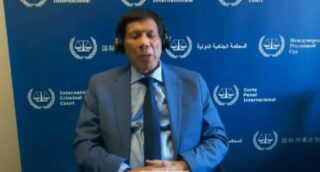When President Benigno Aquino III announced the formation of a board of inquiry that would look into the facts and circumstances behind the tragic Mamasapano incident, the public was immediately skeptical. Critics said it was a recipe for a whitewash, given that the board was composed of senior police officers who were reporting to Philippine National Police Director General Alan Purisima before his suspension from office, and Purisima was now being tagged as the prime instigator of the raid on Moro Islamic Liberation Front territory that led to the killing of 44 Special Action Force commandos, as well as 17 MILF fighters and at least three civilians.
Would the BOI members have the gumption to investigate their erstwhile boss and hold him responsible not only because he defied his suspension from office but also, and more critically, because his clandestine but clumsy management of the operation, marked by glaring blunders and blind spots, appeared to have directly contributed to its bloody end? And would they go as high as President Aquino, the Commander in Chief who authorized the operation—and relied on his old friend Purisima to oversee it?
The release of the BOI report a month later quickly doused fears of a cover-up. While Malacañang repeatedly fudged the issue of ultimate responsibility for Mamasapano, the BOI report, in dispassionate language, made clear that three people were principally responsible for the incident: sacked SAF director Getulio Napeñas for his failure to coordinate the operation with the military; Purisima for having taken an active hand in its implementation despite his suspended status, even giving Napeñas the pivotal—ultimately harmful—“advice” not to bring the military and the Department of Interior and Local Government into the loop; and the President himself, for having allowed the participation of the suspended Purisima, thereby bypassing the PNP chain of command.
The report was a credit to the integrity and professionalism of the BOI members, and served as a signal honor to their fellow policemen who died in the line of duty (but perhaps needlessly so had the operation been better managed). And its speedy release to the public, unabridged and unvetted by Malacañang, was, as Inquirer columnist Oscar Franklin Tan put it, “a stunning new gold standard for our Constitution’s ‘right of the people to information on matters of public concern,’ which deserves great respect, and which one hopes has set the new bar.”
The fact that the Palace did not interfere in the BOI report to produce a whitewash should have given the President a breather of sorts, an opportunity to turn the corner, as it were. But again, exasperatingly typical of it, Malacañang couldn’t leave well enough alone. The President’s subsequent meeting with the BOI chair, PNP Director Benjamin Magalong, ostensibly to clarify portions of the report, was as ill-advised as many of his other actions in the wake of Mamasapano. It ran the risk of tainting the independence of the report, as if Malacañang were lobbying to change the findings. Worse, that Mr. Aquino had reportedly showed Magalong the text messages between him and Purisima to explain his mindset during the operation raises the question of why he and Purisima had declined to be interviewed by the board in the first place—only for Malacañang to then initially assail the report as “speculative.”
The administration’s flailing about is growing farcical by the hour, were it not for the grim implications it presents to an anxious public looking for some semblance of clarity and honesty regarding Mamasapano. An overwhelming 79 percent says the President’s explanations have not been sufficient, according to the latest Pulse Asia survey conducted in the first week of the month. But even as the crisis roils the political landscape, a majority (42 percent) is also not keen on calls for him to resign the presidency for his lapses in the botched operation. Nevertheless, the window of opportunity for him to turn the tide and arrest the steep decline in his popular standing is fast closing.
The release of the Senate report, the draft of which has been signed by 20 senators, presents another chance for the President to finally address the issue without defensiveness or guile. He needs to. He has time to change the game—but barely.


